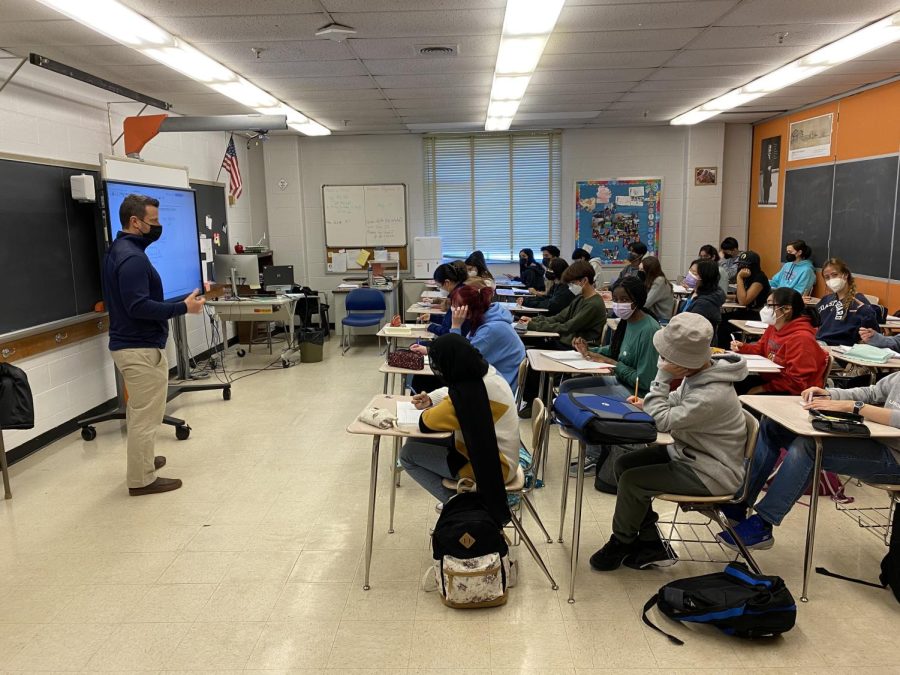Students struggle through challenging math classes
David Marchand teaches a seventh period Honors Precalculus class on Feb. 28. Students are learning about trigonometric identities.
Math is a core subject that is required on the high school transcript yet students seem to be struggling excessively with the current math curriculum. Understanding the concepts taught is the key to getting a desirable grade in math. However, quarantine stunted this learning and now students are having a hard time.
At school, students are spread out through the levels of math. There are more than six courses offered including Algebra 1, Geometry, Algebra 2, Precalculus, Calculus and Statistics. In these courses there are different levels of difficulty and areas of study. “As early as middle school, students are often split into “tracks” in ways that predetermine who will take advanced classes in high school. “The advanced classes are often full of students who are white or Asian and attend suburban schools – while Black and Latino students continue to be underrepresented,” according to USA today.
Students often feel pressured by their families and community pressures to take more challenging courses then they need to. This is not an expectation that teachers have, as they say that students should take whichever courses they are comfortable with. “I feel like taking AP BC Calculus is very challenging to learn on the first go. If I were to go back a year I would have done some prior studying and learned most of the material,” sophomore Kevin Woo said.
Test days are always stressful according to students because the assessments on those days are large in point value and include complex concepts. Knowing what to study is difficult due to the vast expanse of topics covered in a unit and knowing the possible conceptual questions. “I always study hard for math tests. Even though I understand the concept I still have trouble answering certain questions due to the pressure of taking the exam. Often, you are stumped by a question and that gives you doubt if you are going to do well or not,” Woo said.
Across different places in the U.S. and across the world, students are faced with different math curriculums. In Virgina, the math progression for high school is Algebra 1 in ninth grade, Geometry in 10th grade, Algebra 2 in 11th grade and Pre-calculus in senior year. “I always find it amazing to see students from younger grades be in a high math class,” junior Colin Hall said.
The problems that students face are also personalized, whether they lie in solving equations or in implementing an effective test-taking strategy. More importantly, math is an inclusive course; you can’t forget concepts from previous years. This is difficult because on the assessments they can bring back previous concepts integrated with the new topics you just learned. “Math is unique. You need to have mastery over your previous math course before you can do well in your next ones. It’s not like history where you can forget about the previous history course and start fresh,” math resource teacher Keith Burnham said.
Your donation will support the student journalists of Thomas S. Wootton High School. Your contribution will allow us to purchase equipment and cover our annual website hosting costs.
Shravan is a 2022 graduate.







